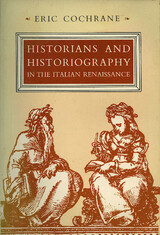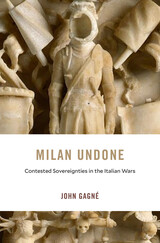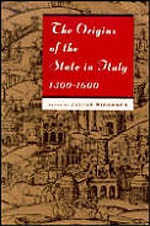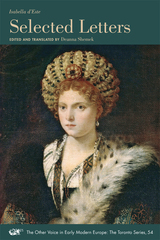

A new history of how one of the Renaissance’s preeminent cities lost its independence in the Italian Wars.
In 1499, the duchy of Milan had known independence for one hundred years. But the turn of the sixteenth century saw the city battered by the Italian Wars. As the major powers of Europe battled for supremacy, Milan, viewed by contemporaries as the “key to Italy,” found itself wracked by a tug-of-war between French claimants and its ruling Sforza family. In just thirty years, the city endured nine changes of government before falling under three centuries of Habsburg dominion.
John Gagné offers a new history of Milan’s demise as a sovereign state. His focus is not on the successive wars themselves but on the social disruption that resulted. Amid the political whiplash, the structures of not only government but also daily life broke down. The very meanings of time, space, and dynasty—and their importance to political authority—were rewritten. While the feudal relationships that formed the basis of property rights and the rule of law were shattered, refugees spread across the region. Exiles plotted to claw back what they had lost.
Milan Undone is a rich and detailed story of harrowing events, but it is more than that. Gagné asks us to rethink the political legacy of the Renaissance: the cradle of the modern nation-state was also the deathbed of one of its most sophisticated precursors. In its wake came a kind of reversion—not self-rule but chaos and empire.

The Origins of the State in Italy, 1300-1600 represents the best in American, British, and Italian scholarship and offers a valuable and critical overview of the key problems of the emergence of the state in Europe. Some of the topics covered include the political legitimacy of the aborning regional states, the changing legal culture, the conflict between church and state, the forces shaping public finances, and the creation of the Italian League.
The eight essays in this collection originally appeared in the Journal of Modern History. Contributors include Roberto Bizzocchi, Giorgio Chittolini, Trevor Dean, Riccardo Fubini, Elena Fasano Guarini, Aldo Mazzacane, Anthony Molho, and Pierangelo Schiera. This volume will appeal to historians, historical sociologists, and historians of political thought.

The most complete translation available of these brief biographies of great European figures, written by one of the leading historians of the sixteenth century.
Portraits of Learned Men provides a fascinating synopsis of the contours, mentality, and trajectory of humanistic culture in Italy and Europe by one of the leading historians of the sixteenth century, Paolo Giovio (1483–1552). These brief biographies of 146 men of learning—from Dante, Petrarch, and Boccaccio in the fourteenth century to Erasmus, Thomas More, and Juan Luis Vives in the sixteenth—were meant to accompany accurate portrait paintings commemorating great figures in modern history. Presented together with the literary portraits in this volume, these paintings would be located in a purpose-built villa on Lake Como that would be open to the public. Giovio called this his musaeum, or home of the Muses, one of the first such institutions in European history. His museum would not only serve the traditional function of inspiring virtuous emulation but also provide a comprehensive, candid, and personal overview of the Republic of Letters as it had taken shape and flourished in Italy and Europe during the Renaissance.
This volume contains a fresh edition of the Latin text and a new, more complete translation than any now available in English.

Isabella d’Este (1474–1539), daughter of the Este dukes of Ferrara and wife of Marchese Francesco II Gonzaga of Mantua, co-regent of the Gonzaga state, art collector, musician, diplomat, dynastic mother, traveler, reader, gardener, fashion innovator, and consummate politician, was also, as this volume attests, a prolific letter writer with a highly developed epistolary network. Presented here for the first time in any language is a representative selection from over 16,000 letters sent by Isabella to addressees across a wide social spectrum. Together, they paint a nuanced and colorful portrait of a brilliant and influential female protagonist of early modern European society.
READERS
Browse our collection.
PUBLISHERS
See BiblioVault's publisher services.
STUDENT SERVICES
Files for college accessibility offices.
UChicago Accessibility Resources
home | accessibility | search | about | contact us
BiblioVault ® 2001 - 2024
The University of Chicago Press









